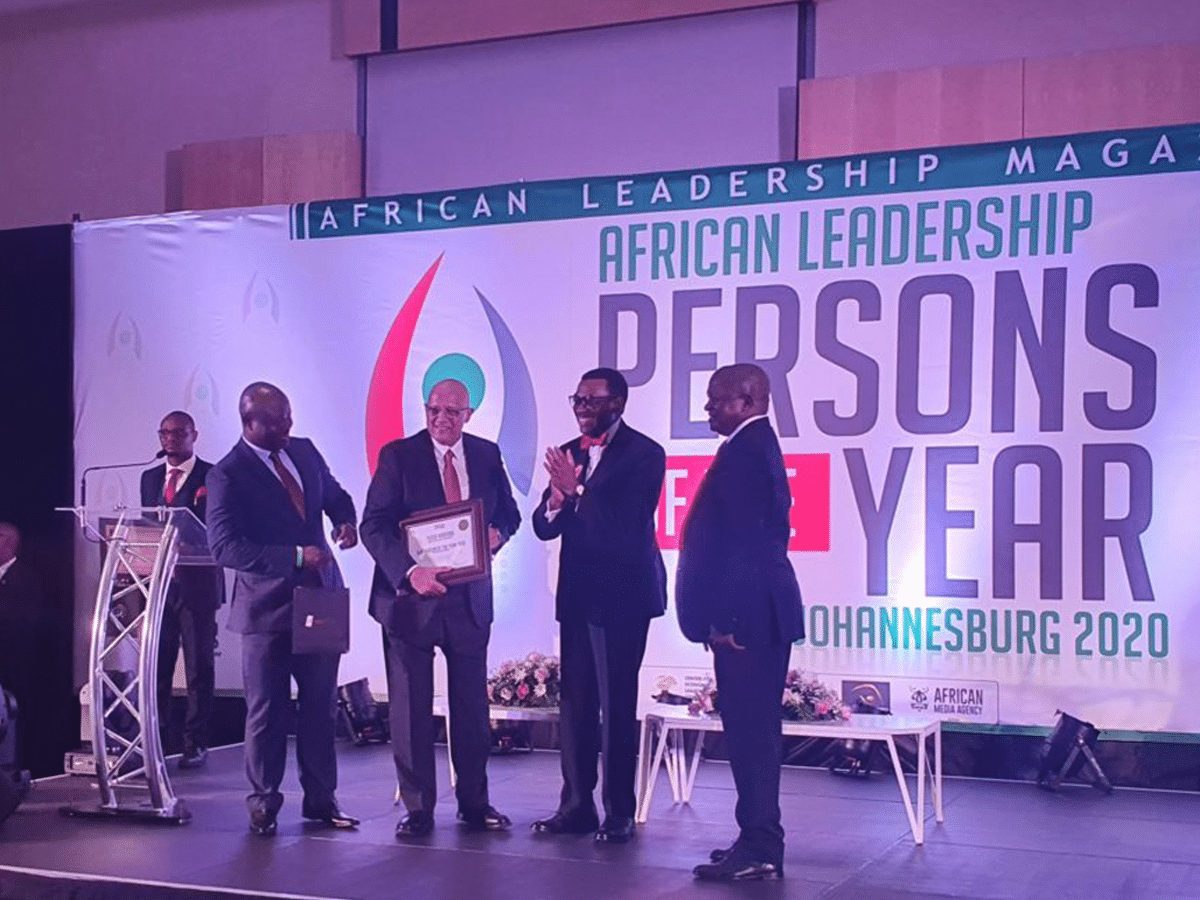Africa’s greatest education developer award goes to Prof Karodia
Professor Karodia, the founder of distance learning institutions MANCOSA and REGENT Business School, was commenting at a glittering awards ceremony and banquet in Sandton, Johannesburg, after receiving the award for being voted Africa’s greatest visionary in the development of higher education.

29 February 2020
Africa’s leading educationist, Durban academic Professor Yusuf Karodia, says traditional approaches to higher education are becoming irrelevant in the era of the Fourth Industrial Revolution.
Professor Karodia, the founder of distance learning institutions MANCOSA and REGENT Business School, was commenting at a glittering awards ceremony and banquet in Sandton, Johannesburg, after receiving the award for being voted Africa’s greatest visionary in the development of higher education.
MANCOSA and REGENT Business School are proud members of the Honoris United Universities, the first Pan-African private higher education network committed to preparing and educating the next generation of African leaders and professionals who are able to impact regionally in a globalised world.
The gala presentation function was hosted by African Leadership Magazine which presents the prestigious annual African Leadership Persons of the Year Award under various categories.
Professor Karodia was nominated for the Person of the Year 2019 – Educational Development Award. This award is open to an African who has contributed to the growth of education and deepening knowledge. It is also reserved for a member of the academic world whose research or policy has contributed to shaping his or her country’s economic growth and development.
Dr Ken Giami, publisher of African Leadership Magazine, said Africans have spoken with their votes by electing Professor Karodia as this Year’s African Person of the Year in the Education Development category.
“Professor Karodia’s towering record and visionary contributions in the development of Africa’s higher education sector are most inspiring.
“At a time of deepening rot in the education system of several African states, we see in Professor Karodia a man on a mission to salvage our educational system. “We are very pleased with his contributions as he continues to set the pace in transforming higher education across the continent,” he said.
Dr Giami said according to recent UNESCO reports, Sub-Saharan Africa has one of the highest rates of education exclusion globally, where over one-fifth of children between the ages of 6 and 11 are out of school. Equally worrying is the fact that almost 60% of young people between the ages of about 15 and 17 are not in school.
“Without urgent and timely actions, the situation will likely get worse as the region faces a rising demand for education. Yet education represents the biggest route to lifting people out of poverty and setting up society for sustainable growth and development.
“That is why African Leadership Magazine places a great premium on the key players making a difference in Africa’s education sector,” he said.
Speaking with deep humility, Professor Karodia who has epitomised African excellence during the four decades of being involved in the education sector, said he accepted the award on behalf of students, staff and graduates of Honoris United Universities as well as all educators moulding the minds of Africa’s future leaders in all walks of life.
Professor Karodia said the Fourth Industrial Revolution will make much of the work that exists today obsolete over the next few decades.
“Artificial intelligence will drive the Fourth Industrial Revolution and it will eradicate from the workplace many tasks presently performed by humans. The merging of man and machine will demand the redesigning of education to meet the challenges of the future.
“The main requirement will be lifelong learning and the ability to acquire new skills quickly.
“We, therefore, need an education system that is forward-looking. This will entail training and retraining teachers, as well as redesigning education systems and curricula to allow for agility and adaptability.
“We must bring down the barriers that exist between education and the real world. Bring the working world into education a lot earlier and take education into the working world,” he said.
Professor Karodia began his career in 1973 as a school teacher. In 1988, after completing a Master of Education degree at the University of South Africa, he lectured in educational management and comparative education at the University of KwaZulu-Natal (UKZN).
Thereafter, he completed his PhD degree at the University of Pretoria. His talents and abilities as a scholar have been recognised through various awards. Notable amongst these are the British Council, Fulbright and Educational Opportunities Council scholarships. In addition, he has participated in local and international conferences and has published widely.
As a young and aspiring educator in a turbulent socio-economic setting, Professor Karodia quickly realised that promising black students were denied access to university education under the Apartheid regime. The injustice that he witnessed and experienced, motivated him to inspire change. In time and with a massive leap of faith, he established two private higher education institutions that would provide access to quality education at an affordable price, especially for those who were previously denied access to postgraduate education. He also recognised that in order to have a meaningful impact, quality distance education was required.
Apart from replacing cost-prohibitive higher education with affordability and access, Professor Karodia is also a great philanthropist.
As a strong believer that reading is an essential ingredient for children to improve their literacy, through the Yusuf Karodia Foundation he has launched the “Million Books Project” which aims to provide more than a million books to school children across South Africa through mobile libraries.
Professor Karodia is of the sincere conviction that online and blended learning is the future of education as it helps make education more accessible – especially where higher education infrastructure is lacking. He believes that high impact, value-for-money and quality-assured education offerings, will increasingly be in demand globally, especially given the tough economic climate and high unemployment rates in most developing countries of the world.
He has forged numerous links and networks with educational institutions both locally and internationally. He has also been instrumental in shaping the purpose and role of business education through his role at the South African Business Schools Association, the Association of African Business Schools and the BRICS Business Schools Association, the headquarters of which is located at REGENT Business School.
Professor Karodia’s advice to young graduates, leaders and entrepreneurs is to dream about the future, seek to reduce inequality and make the world a just and better place for all who live in it. At the same time, he emphasises the need to inculcate excellence and quality in all that we do, so that we are able to be agents of change in society.





